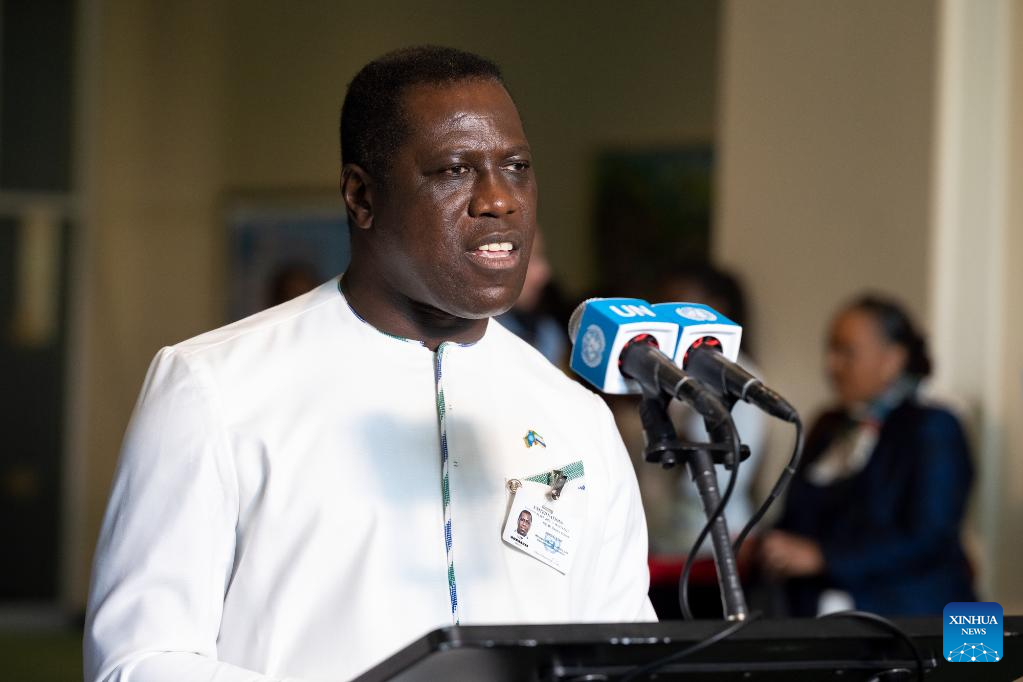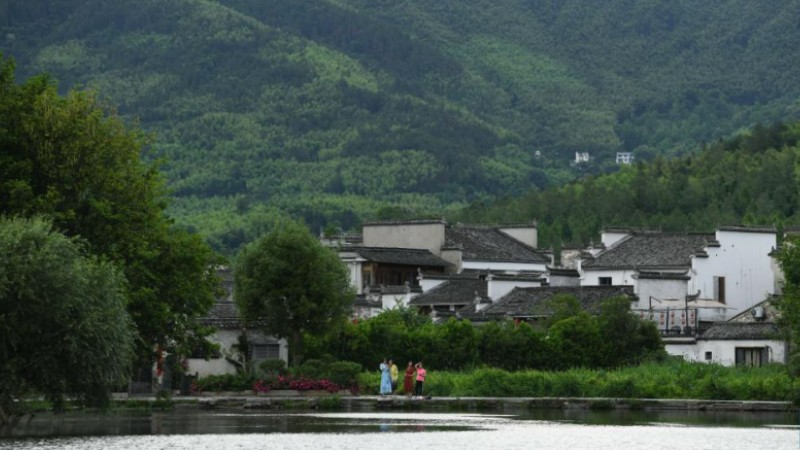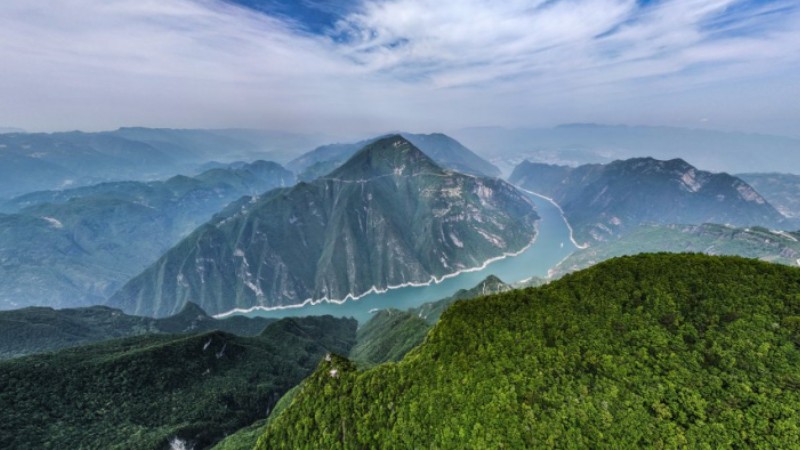Algeria, Guyana, Republic of Korea, Sierra Leone, Slovenia elected non-permanent members of UN Security Council

UN General Assembly President Csaba Korosi (L) presides over a meeting to elect non-permanent members of the Security Council at the UN headquarters in New York, on June 6, 2023. Algeria, Guyana, the Republic of Korea, Sierra Leone, and Slovenia were elected non-permanent members of the UN Security Council on Tuesday for a two-year term. (Evan Schneider/UN Photo/Handout via Xinhua)
UNITED NATIONS, June 6 (Xinhua) -- Algeria, Guyana, the Republic of Korea, Sierra Leone, and Slovenia were elected non-permanent members of the UN Security Council on Tuesday for a two-year term.
The newly elected members will take up their new responsibilities on Jan. 1, 2024, and serve till Dec. 31, 2025.
Algeria, Guyana, the Republic of Korea, and Sierra Leone were running unopposed on Tuesday. Slovenia and Belarus contended the one seat for Eastern Europe.
The five newly elected members will replace the outgoing non-permanent members of Albania, Brazil, Gabon, Ghana, and the United Arab Emirates.
A candidate must obtain the support of two-thirds of the UN member states present and voting at the General Assembly session in order to secure a non-permanent seat on the Security Council, regardless of whether the candidacy is contested or not. This means that a minimum of 129 positive votes are required to win a seat if all 193 member states are present and voting. Member states that abstain are considered not voting.
In Tuesday's voting, Guyana won the support of all member states that were present and voting, with 191 votes. Sierra Leone won 188 votes, Algeria won 184 votes, and the Republic of Korea won 180 votes, according to results announced by Csaba Korosi, the current General Assembly president, who presided over the voting process.
Slovenia won outright in the first round with 153 votes, compared with 38 votes for rival Belarus.
All the five newly elected members have previously served on the Security Council. Algeria has served three times. Guyana and the Republic of Korea have each served twice. Sierra Leone and Slovenia have each served once.
The Security Council has 15 members, five of which are permanent ones: Britain, China, France, Russia, and the United States. The 10 non-permanent seats of the council are allocated by geographic region, with five replaced each year.
The five newly elected countries represent Africa, Asia-Pacific, Latin America and the Caribbean, and the Eastern European group. The group of Western Europe and other states is not contesting any seats this year, as its two seats, currently held by Malta and Switzerland through 2024, come up for election every other year.
The Security Council is considered the most powerful body of the United Nations. The council, which is tasked to maintain international peace and security, can make legally binding decisions and has the power to impose sanctions and authorize the use of force against states.

Amar Bendjama, Algeria's permanent representative to the United Nations, speaks to reporters after his country was elected as a non-permanent member of the UN Security Council at the UN headquarters in New York, on June 6, 2023. Algeria, Guyana, the Republic of Korea, Sierra Leone, and Slovenia were elected non-permanent members of the UN Security Council on Tuesday for a two-year term. The newly elected members will take up their new responsibilities on Jan. 1, 2024, and serve till Dec. 31, 2025. (Loey Felipe/UN Photo/Handout via Xinhua)

Guyanese Foreign Minister Hugh Hilton Todd speaks to reporters after his country was elected as a non-permanent member of the UN Security Council at the UN headquarters in New York, on June 6, 2023. Algeria, Guyana, the Republic of Korea, Sierra Leone, and Slovenia were elected non-permanent members of the UN Security Council on Tuesday for a two-year term. The newly elected members will take up their new responsibilities on Jan. 1, 2024, and serve till Dec. 31, 2025. (Loey Felipe/UN Photo/Handout via Xinhua)

Hwang Joon-kook, the Republic of Korea's permanent representative to the United Nations, speaks to reporters after his country was elected as a non-permanent member of the UN Security Council at the UN headquarters in New York, on June 6, 2023. Algeria, Guyana, the Republic of Korea, Sierra Leone, and Slovenia were elected non-permanent members of the UN Security Council on Tuesday for a two-year term. The newly elected members will take up their new responsibilities on Jan. 1, 2024, and serve till Dec. 31, 2025. (Loey Felipe/UN Photo/Handout via Xinhua)

Sierra Leonean Foreign Minister David Francis speaks to reporters after his country was elected as a non-permanent member of the UN Security Council at the UN headquarters in New York, on June 6, 2023. Algeria, Guyana, the Republic of Korea, Sierra Leone, and Slovenia were elected non-permanent members of the UN Security Council on Tuesday for a two-year term. The newly elected members will take up their new responsibilities on Jan. 1, 2024, and serve till Dec. 31, 2025. (Loey Felipe/UN Photo/Handout via Xinhua)

Slovenian Foreign Minister Tanja Fajon speaks to reporters after her country was elected as a non-permanent member of the UN Security Council at the UN headquarters in New York, on June 6, 2023. Algeria, Guyana, the Republic of Korea, Sierra Leone, and Slovenia were elected non-permanent members of the UN Security Council on Tuesday for a two-year term. The newly elected members will take up their new responsibilities on Jan. 1, 2024, and serve till Dec. 31, 2025. (Loey Felipe/UN Photo/Handout via Xinhua)
Photos
Related Stories
- UN chief asks countries to look beyond GDP as measurement of economic progress
- UN chief launches 3 policy briefs on Our Common Agenda
- Despite fighting during shaky ceasefire, humanitarians deliver truckloads of aid: UN
- UN appeals for sustainable funding for agency supporting Palestine refugees
- Trinidad and Tobago diplomat elected new president of UN General Assembly
Copyright © 2023 People's Daily Online. All Rights Reserved.









